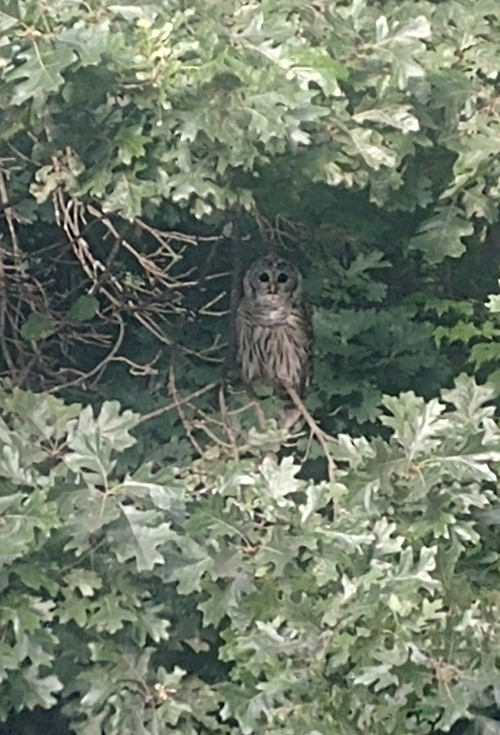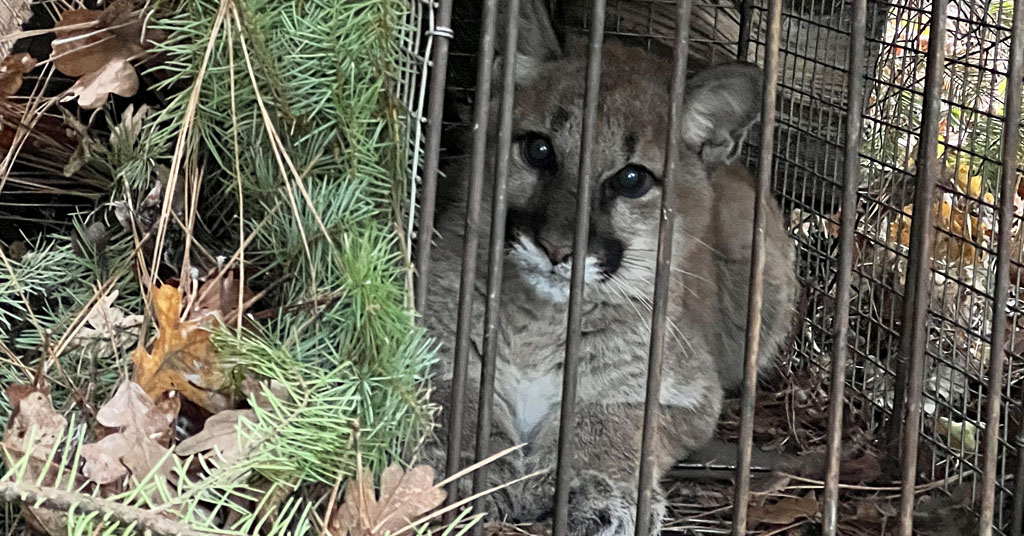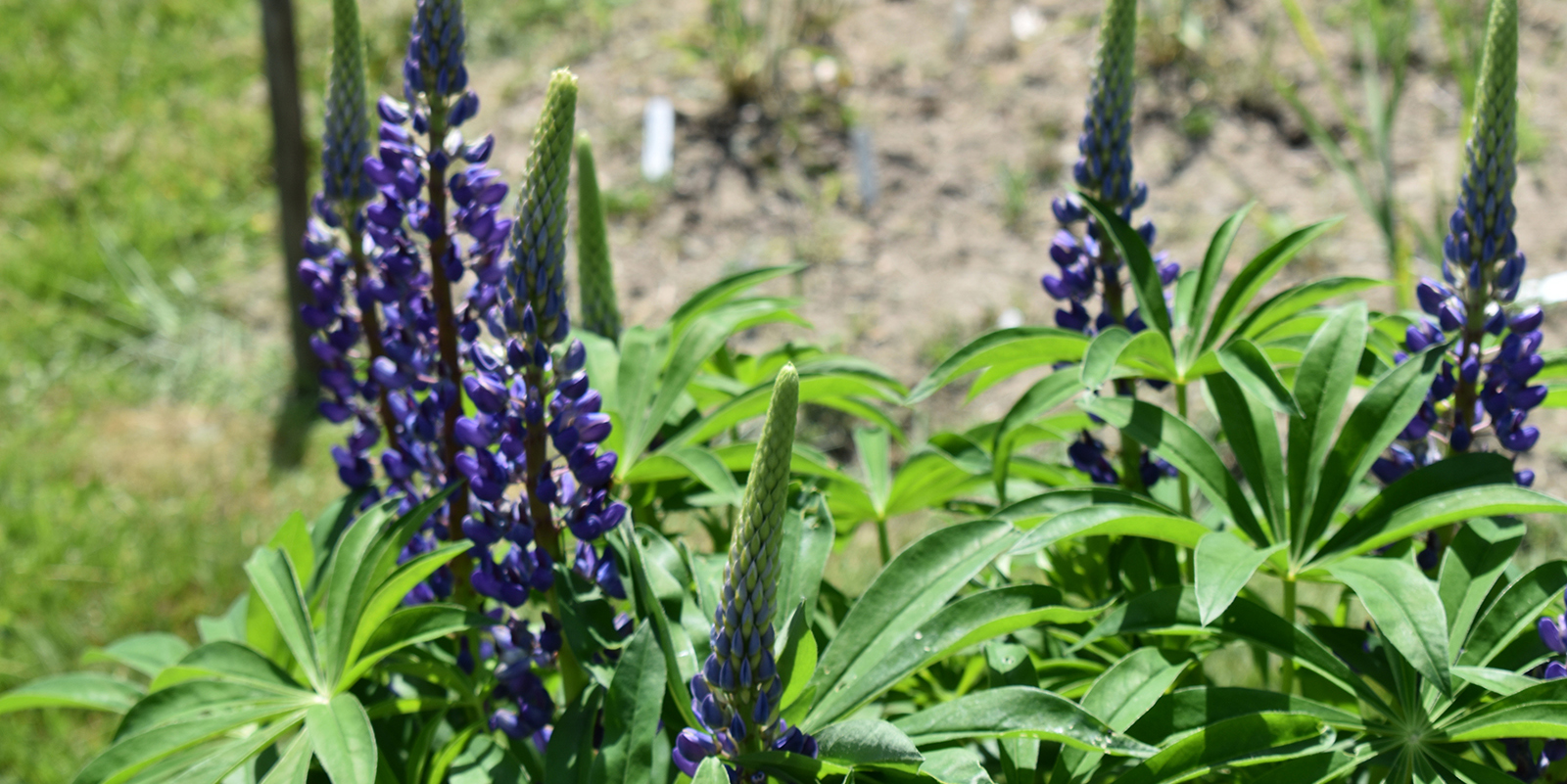Lincoln ‘Treehugger’ Watches in Despair as Neighborhood Trees Fall Like Dominoes
March 19, 2023
While marginalized communities are surrounded by impervious surfaces and polluting industry and lack green space, a growing tendency in more affluent and mostly white neighborhoods is the slaughter of healthy trees for parochial reasons.
Cutting down trees because their leaves clog gutters, their pine needles are messy, it hurts when acorns are stepped on, or because branches and twigs fall when it’s windy, doesn’t jibe with the importance of these majestic pillars.
Trees are more than Christmas decorations, or for building decks and docks. They provide shade and habitat. They are buttresses against wind and rain. They provide oxygen — one tree, on average, produces about 260 pounds of oxygen annually. They help mitigate the climate crisis.
Last month, ecoRI News published an opinion piece by Providence resident Victor Martelle about the axing of urban trees. His piece led with this sentence:
“When I chat with landlords who live near me on the city’s East Side about why they had trees removed from their property, ‘squirrels,’ ‘bird poop,’ ‘I hate raking,’ or ‘I want grass or concrete instead,’ are the most common explanations.”
That lead and the rest of Martelle’s piece hit a nerve with a longtime Lincoln, R.I., resident. She sent an email to ecoRI News, and later this reporter spoke with her via Zoom. She didn’t want her name used, for fear of upsetting her neighbors. It is private property after all, she noted.
In her email, she wrote she has been watching a “disturbing trend” unfold in her suburban neighborhood during the past few years: “neighbors are cutting down every tree on their property!” — a bit of hyperbole after reading Martelle’s piece, but the scars are visible from Westerly to Woonsocket.

“Typically the tree cutting occurs by new, younger owners when homes are sold, but long time owners are also doing this for reasons like the ‘mess,’” she wrote. “As a tree lover I find this extremely distressing to witness. Are all these people completely unaware of the benefits of trees, both psychological and for their role in mitigating climate change?”
When she moved to Rhode Island four decades ago, to Cumberland from out of state, it was during the height of a gypsy moth infestation. She wanted to get her property exempted from the town’s spraying program, as she was more concerned about the poisons being sprayed than the damage being done by the invasive species.
That request required getting her immediate neighbors to sign on. They didn’t, and she understood.
“Without fail, no one would sign my petition, citing ‘property values going down if we lose our trees,’” she wrote. “Fast forward 40 years and now everyone is clear-cutting their properties. I just don’t get it. It is heartbreaking.”
Last year the Rhode Island Environmental Education Association held a summit titled “Trees for the People: Environmental Justice for Rhode Island’s Frontline Communities.” The event featured three keynote speakers — Providence resident Tonay Gooday-Ervin, a member of the White Mountain Apache Tribe in Arizona and a third-generation Cuban American; Kufa Castro, recruitment and leadership coordinator at Providence-based Building Futures; and Joann Ayuso, founding director of Movement Education Outdoors.
They all spoke about the importance of trees and how they are more than things to be owned or a resource that equals money.
As a project coordinator with the PVD Tree Plan, Ayuso had the opportunity to read surveys and have conversations with people about trees. She noted much of the feedback disrespected the vital role trees play in human health and well-being.
“Now depending on who the story or opinion is coming from, folks say, ‘Eh, trees are great to build houses. The leaves on the trees are a nuisance because I have to clean them up. Trees mostly get in the way of seeing things. Trees are dangerous; they get old and fall on your house,’” she said. “The comments remind me of separation of nature and body that is at the core of the environmental catastrophes we face today. When this separation occurs, it’s easy to keep distance to not acknowledge our relatedness to land, water, air, and nonhuman life. Disconnection brings disrespect and disregard. This creates an opportunity to exploit a tree, mistreat, and gain profit.”
During the recent conversation with the self-proclaimed “treehugger” living in Lincoln — she has lived there since 1987 and in the same house for the past 26 years — she spoke about the same disrespect of which Ayuso referred.
Between her home and her neighbor’s in the back, stood a significant stand of trees, at least for a suburban neighborhood, under which a carpet of leaves, felled branches, woody debris, and some native plants provided food and shelter for wildlife. There used to be more of an understory of bushes and small trees, but during the past decade deer ate most of that away.
Most of the homes in the neighborhood were built in the mid-1980s, so the trees have some height, 75 feet or so.
Her new backyard neighbors arrived in December 2021 and quickly had most of the stand that stood on their property — maples, evergreens, and a few oaks — cut down. In January of last year a fleet of trucks arrived and by the end of the day a dozen or so trees were gone. She shared before and after photos.
“We had maybe a 20-foot buffer of trees and leaf litter and underbrush on our side of the property and they had a similar swath on their side of the property,” she said. “Well, they also came in with bulldozers and dug all of that out, and they planted grass right up to the tree line. … I absolutely cried that day.”
A few months later, the new owners “actually approached me in the spring when they were having their landscaping work done and asked if it would be OK if they cleaned up our side.” She didn’t accept the offer.
Another neighbor recently had a few mature trees close to their house cut down.
“She said they changed homeowners insurance last year and the new insurance company made them cut down any trees close to the house,” she said. “I mean, we have all these global initiatives where people are planting millions of trees, you know, to absorb carbon and help the climate. I’m in my 60s and I’ve never seen this before anywhere I’ve lived. I’ve never seen people cut down trees like this. … This neighborhood does tend to be a bit of what I call sheeple — one person does one thing and they all seem to follow.”
Since they often suffer from a lack of tree cover, low-wealth areas in cities can be 5-7 degrees hotter during the day than higher-income neighborhoods and up to 22 degrees warmer at night.
Besides helping to lessen the heat-island effect by providing shade, a healthy tree canopy also provides essential ecological functions such as capturing carbon to help mitigate the climate crisis; absorbing air pollutants that exacerbate asthma and other respiratory ailments; and reducing stormwater runoff and energy use.




Ugh… I feel for you, I genuinely do. I’m trying all I can to do something in this state and hitting so many brick walls.
It’s heartbreaking. We owned a home in Attleboro for twenty years; it had a gorgeous mature wooded lot. We downsized and sadly sold that house.
I drove by it recently. Every tree…gone, front and back. My soul was crushed. Why didn’t they just buy a house in a sterile new development that had no trees? 😢
Some species of trees have shallow root systems (weeping willow) or are prone to hollows (silver maple) or split easily. We have a silver maple m that is a danger to our house and garage because it is very tall and has hollows that raccoons can fit in as well as squirrels. I hate to see it taken down, but it has damaged one car in our driveway already and does not enable me to safely go near it in windstorms as large branches have come down. On the plus side, I have many large shrubs, evergreens, and underbrush, which provide excellent habitat.
Interestingly, my insurance company is not taking any new customers within 3 miles of the water because of wind danger, not flooding.
I think we need a bit of a wider view of this. First, I agree with those who are stunned and hurt by a neighbor who strips his/her property of trees. I have one, and I didn’t like it. But it is private property, and I am no socialist. That said, I also had a boss who once cleared half his backyard trees in suburban Cumberland (oaks), and a decade later, as he knew would happen, the canopy had again filled in and shaded his yard. His goal: Keep the strongest trees, and let them have sufficient light to grow (and by extension, help the planet.) It worked! But there were fewer trees. As Mr. Graefe writes, there are good reasons to remove old, gnarly and diseased trees. Finally, many homeowners plant trees on their property. A lot of trees. They may be more decorative, or smaller. Still, there is some effort, and they absorb and store carbon.
In closing, I hope “treehugger” and others continue to complain loudly when private developers strip virgin woodland for solar farms in Rhode Island. Nothing makes less sense than that.
Amen to that (stripping trees for solar farms) brother!
People are generally just selfish. Pain & simple.
Never caring for the tree that planted itself and stood is ground, the life that it supports, the habitats it provides for, the carbon it sequesters and the shade it offers from hot summers heat.
People are just selfish.
It’s as if this story was written about me! I’ve owned my home in North Smithfield since 1998 I’m set on 5 acres of wooded land abutting the power lines . I have one neighbor that I have shared driveway with they moved in about 13 years ago between them and the solar farm behind me hundreds of trees have been decimated. I no longer hear the sweet whoo whoo of owls , no longer have the abundance of bats, families of coyotes , foxes nor deer like I had for years that peacefully lived in the woods . Not only that but due to the destruction of hundreds of acres s of established woodlands caused the natural streams to shift now my property is a mess . As well, NEVER in my 25 years of living here could I hear the traffic on 146 now I can hear it day and night ! My once peaceful slice of wooded heaven has been altered forever.
My advice to people who don’t want trees go live in a city ! #leavethetreesalone
I’m joining the chorus on cutting trees for solar farms–NO!
Has anyone thought of putting solar panels above parking lots? It will keep rain and snow off the cars and it won’t involve destroying living ground and plants.
On a happier side: The city of Pawtucket, at request, planted a tree in front of our house. I love it.
People need to be educated. Stories are a great way to educate. We decided it would be a good idea to thin out the trees in our wooded lot, to allow more sunlight in to support the growth of understory fruit trees and berry bushes. Arborist Matthew “Twig” Largess came to look over the situation and make some recommendations. Matt pointed out a number of Norway Maple trees. He explained that they were invasive and removing them should be a priority. Mind you, we kept the many tall pines, hickories and oaks. Read more about Norway Maples here… https://wendyfachon.blog/2022/07/09/norway-maple-vs-sugar-maple/
Also, listen to my podcast with “Twig” at https://dreamvisions7radio.com/matthew-largess/
Next month my radio hour guest will be Craig Hotchkiss from the Rhode Island Tree Council.
City of Cranston had an interesting meeting on trees last week (not the one about solar panels). From what I understand, for every 100 trees taken down by the city each year, only 25 are planted. And those 25 aren’t bought, they’re donated. 10k is the annual tree budget in a city the size of Cranston. If anyone understands otherwise, please correct me. The link to the tree discussion is here and starts at 1:48. https://www.youtube.com/watch?v=_taQBwkv93I
My neighbors and I have recently had large trees removed from our properties mine was a pine tree over one hundred feet tall. This tree had become structurally unsound and had to be removrd. I have planted many trees over the years to enhance my oroperty. When a tree us unsound or diseased or suffers from insect damage it.must be removed..If trees are properly maintained they will be viable for decades.
I have to agree about Norway Maples !!!!!!! I had Norway Maples in my back yard that maxed out–too big and too tall -I live in Pawtucket and they were falling apart. I had to have them removed . Now my backyard has Hemlocks that do not shed but handle the wind and snow quite well. I learned a valuable lesson Norway Maples are invasive and bad.
I’m in South Kingstown. I can hear a chainsaw and chipper from my home, well, it seems like every day. It’s probably 3 times a week on average.
Tree companies make more money on take-downs, and that’s the bottom line. Ask them to thin a tree so the wind will flow through it. They may not even have skilled person to do that. (The RI Arborist training is a joke.)
I do wish there was a way to get ahead of the tree killers and have a talk with the homeowners. Or require take-down companies to plant trees for every one they remove. (Not that we can regain so easily the loss of a mature tree. But it’s something.)
Thank for the courage to tell this important story Victor.
I recently witnessed a new homeowner in Bristol RI on Sunset Drive clear cut his backyard. It was a horrifying experience. Watching wildlife scatter and the natural world destroyed all so the homeowner could improve his “water view” was traumatic. He could have bought a waterfront home if he wanted a water view. Utterly selfish and completely ignorant.
The State needs an awareness campaign to inform citizens on the benefits that trees provide. Towns need ordinances that require land/homeowners to obtain permits to remove trees. Warren RI has something like this in place and could serve as a model for other towns to follow.
It doesn’t appear land/homeowners can/will act responsibily to stop killing trees. Strick regulations with severe penalities are now necessary.
We watched helplessly when a new (young) next-door neighbor decided to use his yard trees as the source for firewood to sell. Private property, but removing so many trees from his (formerly wooded) lot leaves the trees on my lot, near my house, more exposed to storms and wind –trees give each other some shelter in rough weather, not to mention all the other good things already mentioned here. Two new houses have recently been built on my street, and the builders came in and clear-cut the lots as their first step. Yes, I understand that doing so makes it easier to move their equipment around, but this is a wooded neighborhood and these wide-open lots (including my next-door neighbor’s, now –and he has moved away now that he took down most of the trees!!) dramatically don’t fit in. Is there some way the state can work with builders and developers to make them more sensitive to the value having mature trees on the lot add to a new property? Many homes on our road are set back enough so existing trees provide privacy as well as a buffer and a pleasing streetscape.
I dread the warmer weather only because tree cutting will be nonstop
here in Warwick. I’ve lived in 5 states and never seen a war on trees like we have here in Rhode Island. Rhode Island Energy exacerbates the problem with excessive limb cutting. They should be required to plant a tree for every one they destroy.
We need a “save the trees” campaign.